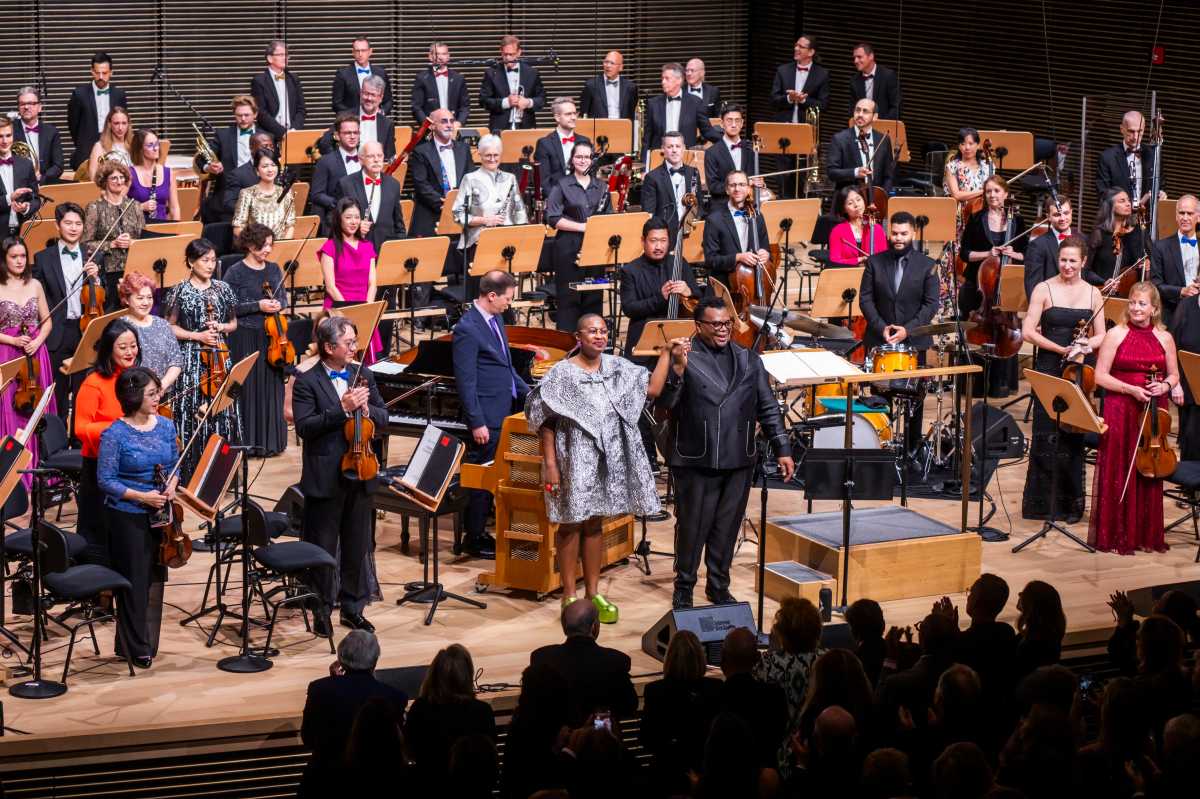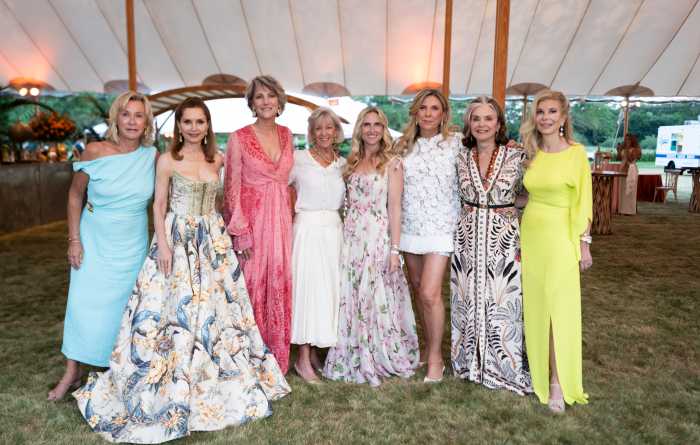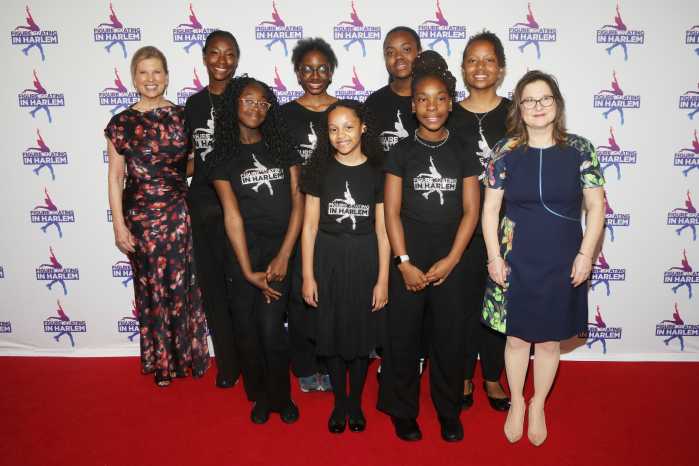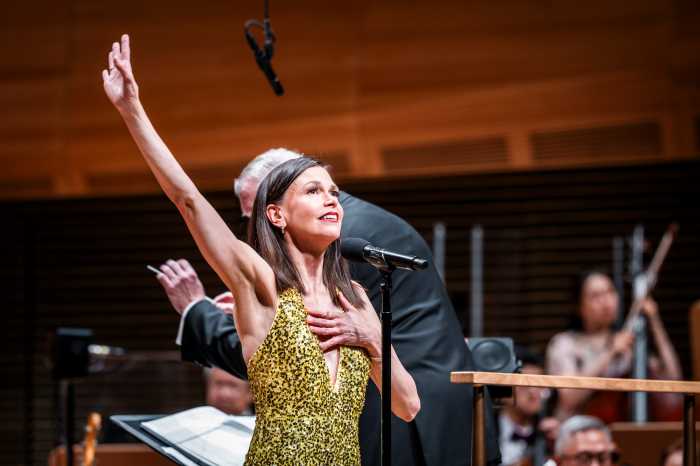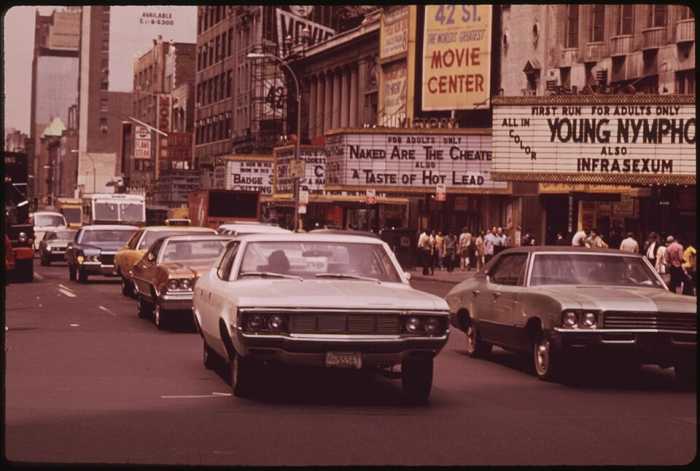The evening began, as it always does, with the Star-Spangled Banner. Yet this time, beneath the vaulted brilliance of David Geffen Hall, it landed with an unfamiliar intensity. A familiar ritual was suddenly alchemized into revelation. The anthem did not announce the start of a program—it pierced like a blade, summoning a tidal current of patriotism made bittersweet by the fractures of our time. For a moment, the music mended what rhetoric cannot. Music heals, music uplifts, music transfigures. I felt it there, as the strings rose, the brass declared, and an aching love for a country in peril caught in my throat.
Then she appeared. Cécile McLorin Salvant, in her Philharmonic debut, sang with a voice that did not merely echo the greats; it belonged to an entirely different register of enchantment. Her sound shimmered with the clarity of Baccarat crystal, refracting centuries of artistry in every phrase. If Ella Fitzgerald embodied velvet, Salvant embodied light: precise, mercurial, intoxicating. She moved effortlessly between Purcell’s austerity, Sondheim’s sly wit, Bizet’s tempestuous arias, and Ellington’s lush jazz idiom—her range both technical and emotional, her every note charged with narrative. To listen was to surrender; to be transfixed in the spell of a voice that seemed to breathe life into the very air around it.
Anthony Parnther, commanding the Orchestra with grace and electricity, drew the Philharmonic through a program that felt like an illuminated manuscript of American and European genius—Gershwin’s jubilant Strike Up the Band, Ellington’s magisterial Black, Brown, and Beige, and Bernstein’s glittering encore, a dizzying “Glitter and Be Gay” that left the hall suspended in delight. This was not mere performance. This was ceremony, a liturgy of sound where every cadence was a benediction and every silence a prayer.
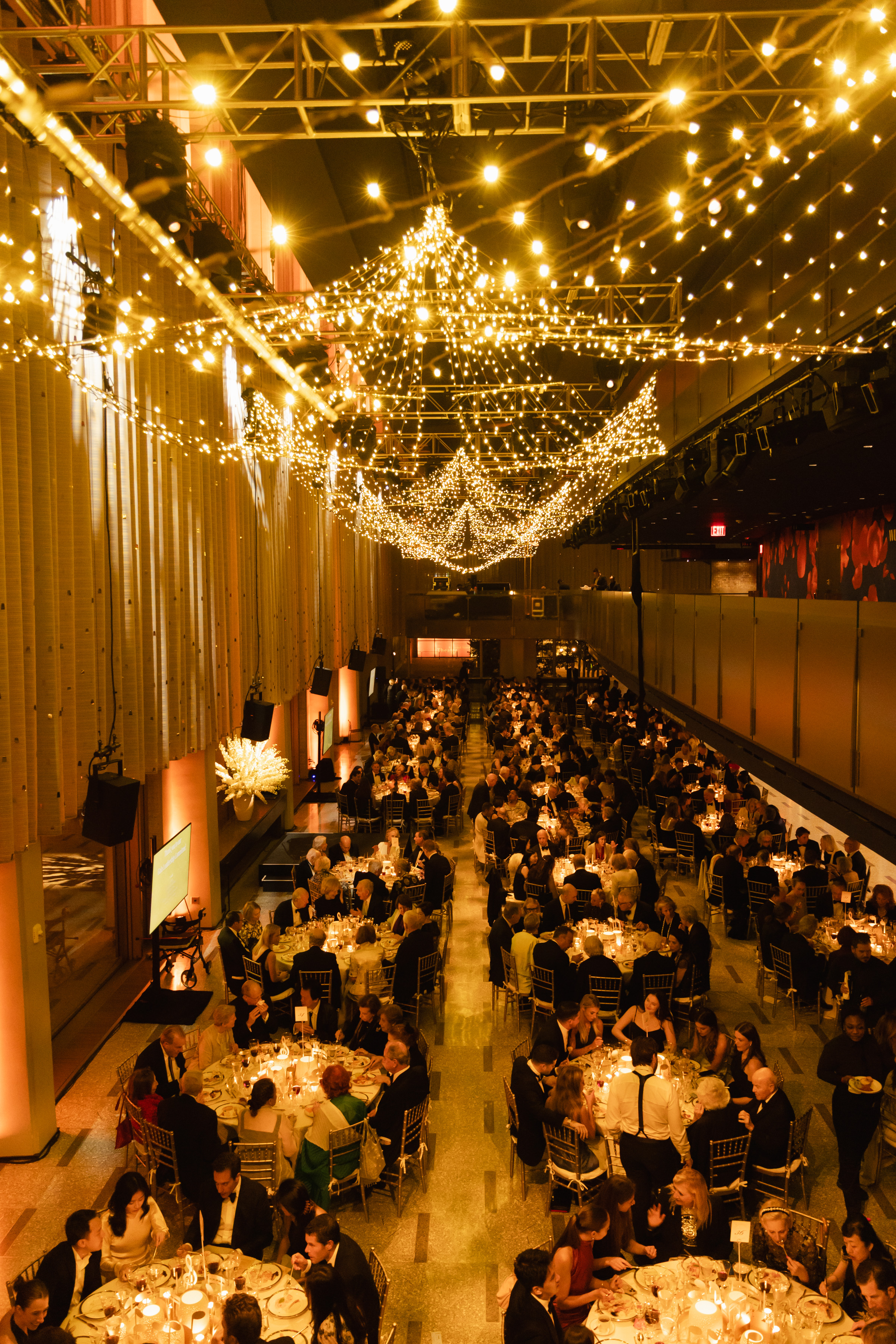
The Gala itself carried a grandeur that mirrored the music: the procession down the red carpet in the LeFrak Lobby, the golden light cascading across the Grand Promenade, the three-course dinner unfolding beneath centerpieces of musical notes that glowed like constellations. Vera Blinken, honored alongside the memory of Ambassador Donald Blinken, stood as the evening’s moral axis—a testament to how the arts are not ornament but architecture, not leisure but legacy. Antony Blinken’s tribute to his father underscored this truth: art unites, art endures, art elevates.
Over $3.3 million was raised that night, yet what was truly gathered was something beyond calculation—a reaffirmation that the Philharmonic is not simply an orchestra, but a vessel of civilization itself. Five hundred guests—luminaries of politics, culture, and society—rose in witness to that fact, their applause as much an offering as an ovation.
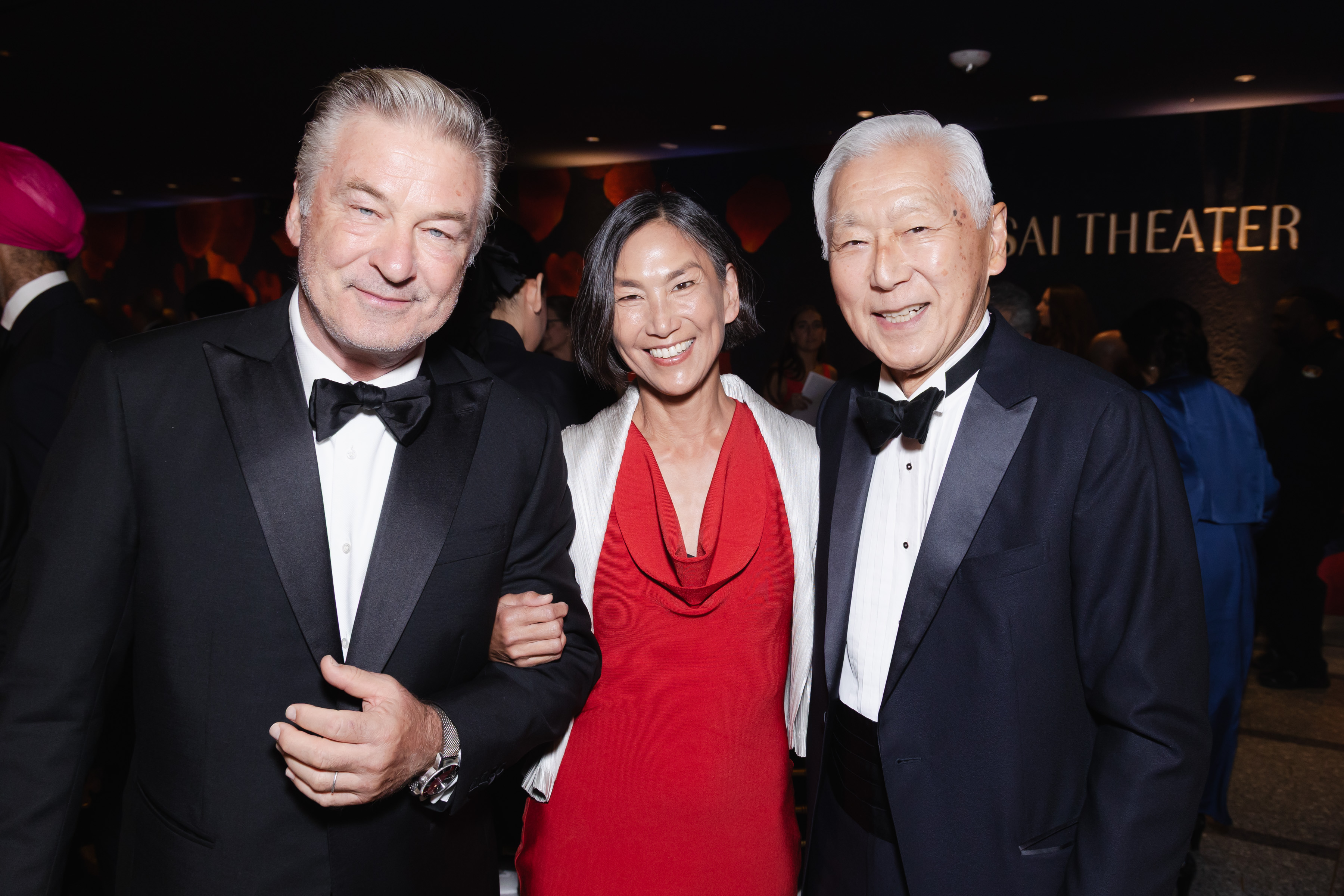
To attend a performance by the New York Philharmonic is to step into an exalted conversation between time, talent, and transcendence. These are not musicians alone; they are custodians of our collective soul, interpreters of humanity’s loftiest dreams and darkest reckonings.
Now is the time to give. Now is the time to attend. To allow the Philharmonic to astonish, to heal, to remind us of the splendor we are still capable of creating. As the season unfolds, answer the call: sit in the hall, let the music overtake you, and leave transformed.
The New York Philharmonic has opened with reverence and radiance. Through it, we remember that art is not an accessory to life—it is life itself
Visit https://www.nyphil.org for tickets.



